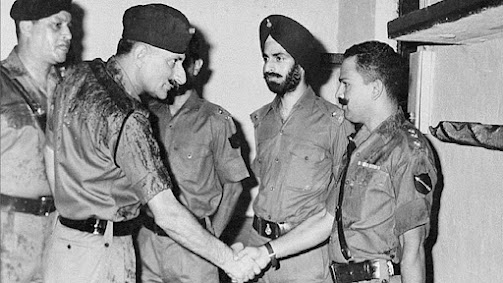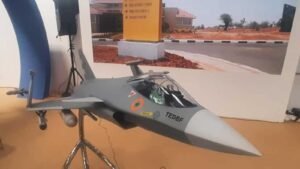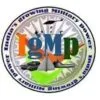Source : The Print
 |
| Sam Manekshaw visiting 62 Cavalry regiment, 1969 (Wikimedia Commons) |
As the British allied forces fought the Japanese in the 1942 Burma Campaign, an injured and bloody Sam Menakshaw was hurriedly being awarded the Military Cross by Major General Sir Richard Cowens. Manekshaw had come to fight the battle with the 4/12 Frontier Force Regiment, popularly known as 54th Sikhs, but he had been hurt on the Sittang Bridge. The award couldn’t be given to a dead person – it looked like Manekshaw had hours left.
Not only did he live, Field Marshal Sam Hormusji Framji Jamshedji Manekshaw, or Sam Bahadur, achieved a rare thing – he became a legend in his own lifetime. As India celebrates the 50th anniversary of the 1971 Bangladesh Liberation War, it is appropriate to remember one of the architects of that famous victory.
A controversial man
Born in Amritsar on 3 April 1914, Manekshaw joined the first batch of cadets at the Indian Military Academy at Dehradun. He was given the appointment of Corporal but had to be de-tabbed for overstaying his day off at Mussoorie without permission.
After the Burma war, Manekshaw moved on in his career in olive green, becoming a General Staff Officer (Grade 1) in the Directorate of Military Operations in the run-up to Indian Independence. Ironically, his number two in this job was Major Yahya Khan, later president and Army Chief of Pakistan with whom Sam went to war in 1971.
By the time Mankeshaw was a Major General and posted as Commandant of the Wellington Defence Services Staff College, he had already fallen foul of Defence Minister V.K. Krishna Menon and the powerful Chief of General Staff, Lt Gen. B.M. Kaul. Manekshaw was accused of anti-national statements and being ‘more British than the British’. He had allegedly made disparaging comments in the presence of foreigners that a portrait of the Maratha ruler Shivaji showing him mounted on a stallion was incorrect, because he would have ridden a ‘Tattu’. He also allegedly said that he would have no officer posted as a Colonel level instructor (Directing Staff) whose wife looked like an ‘Ayah’. However, he was exonerated by the Court of Inquiry headed by Lt Gen. Daulat Singh.
Indira Gandhi, fear of coup and Bangladesh
After the Indian debacle against China in 1962, Sam Manekshaw was asked to take over 4 Corps in Tezpur from the same B.M. Kaul who now had to quit the Army. Manekshaw’s first order was, “There will be no withdrawals, I and my soldiers are expendable but my country’s reputation is not.”
He eventually became the Chief of Army Staff in June 1969. India was going through a turbulent period because the Congress party split and Indira Gandhi came to power with Communist support. There were rumours of a coup doing the rounds. Indira Gandhi sent for Manekshaw and directly asked him his intentions, to which he said he believed in running his Army and nothing more. “My daughter when she comes from convent sings the nursery rhyme, `You mind your business, I mind mine. You kiss your own sweetheart, I kiss mine’. I do not interfere with politics and politicians,” he reportedly told the prime minister.
In March 1971, Indira Gandhi asked Manekshaw to attend a cabinet meeting – the situation in Bangladesh (then East Pakistan) was getting worse. Gandhi asked him to move into East Pakistan as refugees were pouring into India after the crackdown by the Pakistan Army. Manekshaw demurred, he told the cabinet that moving his armour would take time and monsoon would soon be upon the eastern part of the country. With mountain passes opening up, the Chinese ultimatum could not be discounted either. He demanded 6-7 months to prepare the Army for battle.
Lt Gen JFR Jacob in his memoir, An Odyssey in War and Peace, says that it was he who told Manekshaw to inform the government that any action before 15 November would be detrimental to India and Manekshaw acted on his advice.
Once asked why he addressed Indira Gandhi as `Prime Minister’ and not `Madam’ as other ministers and bureaucrats did, Manekshaw retorted, “To call a lady Madam is to equate her with the keepers of bawdy houses. Therefore, I address the Prime Minister by her appointment.”
A man with a drink
Manekshaw was not beyond occasional goof-ups. During his visit to the erstwhile Soviet Union, “Manekshaw kept downing vodka and was often under its influence”.
“At one such banquet, standing unsteadily, he repeated the same speech at the initial and subsequent toasts, much to the amusement of the Russians,” wrote Lt Gen Jacob who accompanied him.
Morarji Desai, the prime minister of the Janata government and a staunch prohibitionist, had an interesting conversation with Manekshaw. Desai told Manekshaw that he had heard he drank. When Sam replied in the affirmative, Desai said, “You should give it up, it’s not good for you.” Manekshaw then told him, “Prime Minister, I come to you and you say don’t drink; I go to party and talk to a pretty girl, my wife wants to know why I’m talking to her; I’m a Field Marshal, is life worth living?” Desai replied, “Your wife is quite right, pretty girls and drinks will ruin you”. Manekshaw had the last laugh when he told Desai they had not ruined him yet!
A life well lived
Sam Manekshaw’s relationship with Defence Minister Jagjivan Ram was frosty. Jagivan Ram felt he was going over his head and had direct access to the prime minister and had hogged all the limelight after the 1971 conflict. This led to perks like allowance and salary as well as personal staff being denied to him as Field Marshal. However, it must be said that Jagjivan Ram was regarded as an able defence minister, and had a second tenure in the defence ministry in the Janata Party government of 1977-79.
Manekshaw spent the evening of his life in Coonoor in the Nilgiris and passed away at the age of 94. It was indeed a life well lived.




